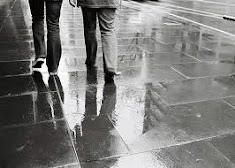MasterPEACE: Young Artists Making a Kinder World has achieved great success in the past year, its fourth in Dallas classrooms. In these four years our staff and volunteer corps of 30 artists and instructors taught the program to over 3,000 children in 16 schools. This Pilot program to train teachers to conduct the art-based lessons themselves will bring MasterPEACE to thousands more children.
Tuesday, October 30, 2012
MasterPEACE Teacher Training 5:17 PM
Monday, October 22, 2012
MasterPEACE Teacher Training 1:24 PM

MasterPEACE Teacher Training during the month of October!
We have teachers from several schools and institutions represented, such as Maya Angelou School for Pregnant and Parenting Teens,
Baylor College of Dentistry, and Multiple Career Magnet School.
29 Pieces is now accredited by the Texas Education Agency to give staff development credits to teachers who train in MasterPEACE with us.





Tuesday, October 2, 2012
29 Pieces Celebrates Gandhi's Birthday 1:52 PM
Born Mohandas Karamchand Gandhi on October 2, 1869 in Porbandar, Kathiawar, West India. Gandhi studied law in London, but in 1893 went to South Africa, where he spent 20 years opposing discriminatory legislation against Indians. As a pioneer of Satyagraha, or resistance through mass non-violent civil disobedience, he became one of the major political and spiritual leaders of his time. Satyagraha remains one of the most potent philosophies in freedom struggles throughout the world today.
In 1914, Gandhi returned to India, where he supported the Home Rule movement, and became leader of the Indian National Congress, advocating a policy of non-violent non-co-operation to achieve independence. His goal was to help poor farmers and laborers protest oppressive taxation and discrimination. He struggled to alleviate poverty, liberate women and put an end to caste discrimination, with the ultimate objective being self-rule for India. Following his civil disobedience campaign (1919-22), he was jailed for conspiracy (1922-4). In 1930, he led a landmark 200 mi march to the sea to collect salt in symbolic defiance of the government monopoly.
On his release from prison (1931), he attended the London Round Table Conference on Indian constitutional reform. In 1946, he negotiated with the Cabinet Mission which recommended the new constitutional structure. After independence (1947), he tried to stop the Hindu-Muslim conflict in Bengal, a policy which led to his assassination in Delhi by Nathuram Godse, a Hindu fanatic. Even after his death, Gandhi's commitment to non-violence and his belief in simple living--making his own clothes, eating a vegetarian diet, and using fasts for self-purification as well as a means of protest--have been a beacon of hope for oppressed and marginalized people throughout the world.


























